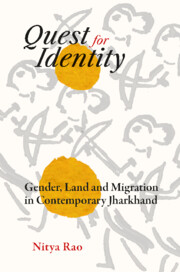7 - Aspiring for Distinction: Gendered Educational Choices in an Indian Village
Published online by Cambridge University Press: 26 July 2023
Summary
Introduction
There is an ongoing debate globally and in India about the types and nature of educational provisioning and its implications on the dynamics of schooling choice and the reproduction of social inequalities (Compare's Special Issue, vol. 36, no. 4, especially Mehrotra and Panchamukhi [2006] and Tooley and Dixon [2006]). Most studies contrast state and private provisioning in terms of access, costs and quality, rather than explore student and parental aspirations and their perceptions about livelihood opportunities and future well-being. The gender-specific ways in which the social and sexual division of labour mediates the schooling experience are largely disregarded. The much-coveted white-collar employment is not necessarily an outcome of educational investment due to the presence of other constraints for boys, and often not even an aspiration for girls; yet the choice of a particular school and the prestige attached to it in itself becomes a marker of social standing and a way of differentiating achievement (Caddell, 2006). Schooling choice can simultaneously be used to either reproduce or transform social and gender inequalities, by excluding the marginalised or providing them an opportunity to gain access to tastes and styles that serve as markers of elite distinction (Bourdieu, 1984).
This chapter explores how people of different social categories (sex, age, occupation, ethnicity) in a village in Jharkhand make educational choices and the way this fits with their distinction aspirations. The village is remotely located, with poor literacy and high poverty rates. It is a mixed-caste village, with populations of Hindus, Muslims and Scheduled Tribes (STs). Social hierarchies and differences are visible in terms of both educational and occupational status across these categories. Despite the presence of affirmative action and welfare policies in favour of the STs, caste Hindus are doing much better than the other two groups. The Muslims and the STs consider attaining education a key strategy to fulfil their aspiration of catching up and competing with the Hindus.
The secondary school certificate in particular is seen as a minimum qualification for most professional jobs; yet in India, few rural boys and girls actually manage to complete their secondary school. At the upper primary level, 50 per cent of enrolled children drop out before completion, with the proportion as high as 65 per cent for ST children (Govinda and Bandyopadhyay, 2007).
- Type
- Chapter
- Information
- Quest for IdentityGender, Land and Migration in Contemporary Jharkhand, pp. 176 - 200Publisher: Cambridge University PressPrint publication year: 2024

